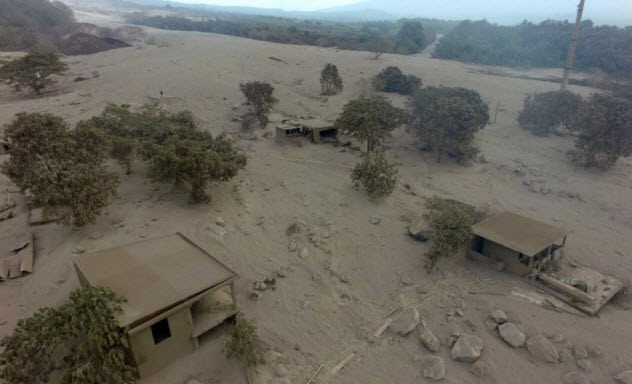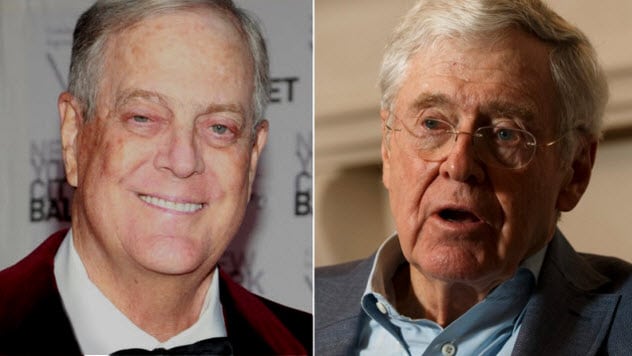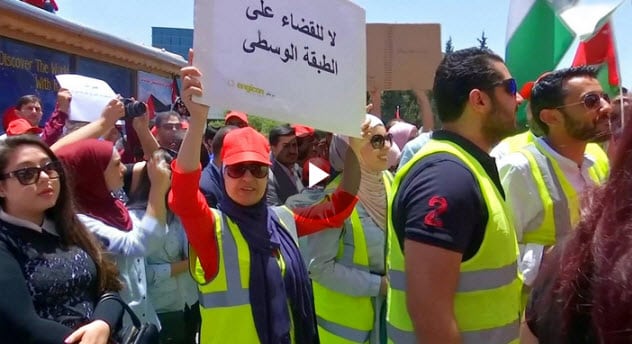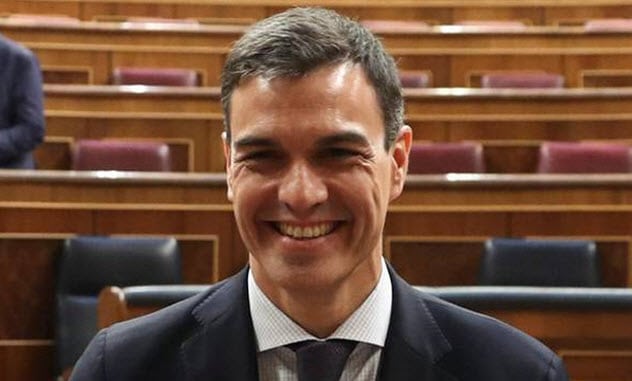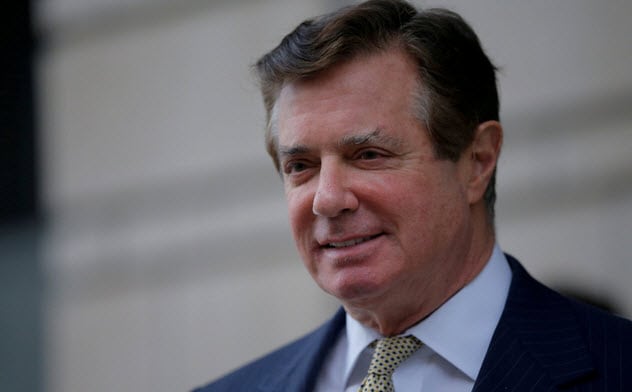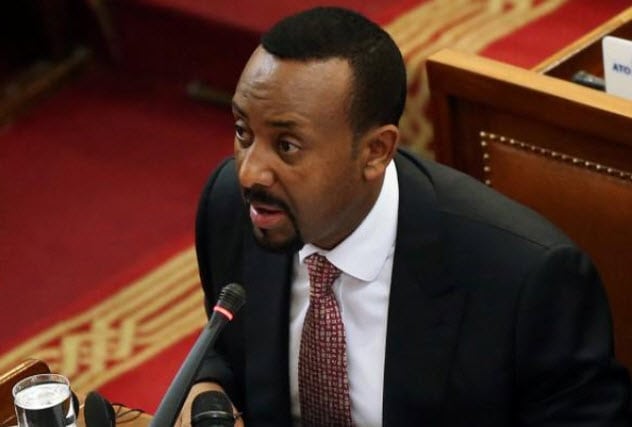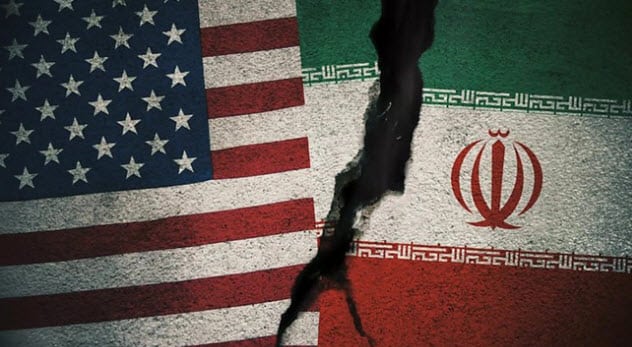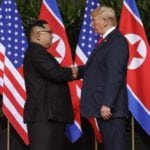The first full week of June began with a bang. On Sunday, a volcano in Guatemala blew its top, burying whole villages beneath a curtain of burning ash. More on this disaster below. We’ll also take a quick look at nine other stories that really deserve your attention this week—from political upheavals in Europe and Africa to a brand-new billionaire plot to take on President Trump.
10 Guatemala’s Volcanic Eruption Wiped Out Whole Villages
On Sunday, Guatemala’s Fuego volcano exploded in a blast of superheated ash and flying rocks. There had been little warning of imminent danger, and many of the small villages built on the mountainside were wiped out in the blink of an eye. Before authorities in Guatemala City had even begun to get a handle on the disaster, reports were already being beamed across the world of a catastrophic death toll. At the time of this writing, nearly 100 have been confirmed dead with close to 200 still missing. Searches for survivors have been repeatedly called off as the still-active volcano fires off new eruptions. By this point, though, it seems like there is little hope for the missing. Realistically, it seems that the final death toll will exceed 200. In Guatemala, blame has already been directed toward the country’s civil emergency authority, which was still telling people that there was no need to evacuate mere hours before the blast.[1]
9 Arizona Caught A Twisted Serial Killer
Last week, the biggest local news in Arizona was that a serial killer appeared to be on the loose. Six people were gunned down over the course of just a few short days, one of whom was a high-profile court psychiatrist. On Monday, the story became even more twisted. Police tracked the killings to Dwight Lamon Jones, who committed suicide as the cops closed in. It was only after he was dead that investigators realized that all his victims were connected.[2] Years before, Jones had been involved in a divorce case that didn’t exactly find in his favor. It’s now apparent that at least four of his six victims were connected to this case, including lawyers who worked for his wife and the court psychiatrist who evaluated him. Far from being a regular serial killer, Jones’s reign of terror seems to have been inspired by revenge.
8 The Trade Wars Began
No one thought he would really do it. Last Friday, President Trump allowed new tariffs to finally go into effect on steel imports. But the targets of his new program weren’t China or other unfriendly nations. Canada, Mexico, and the European Union (including Britain) were all hit with the new steel tariffs. Needless to say, they were not happy.[3] The White House has called Canada and Europe’s cheap steel a threat to national security. Trump has also pointed out repeatedly that the current international system of tariffs and other trade policies is unfair to the US and he wants free trade that is fair. In many cases, other countries have significantly higher barriers to imports from the US than the US has to imports from those countries. With these new tariffs, the Trudeau government in Canada has reacted with outrage, claiming that the US is breaking international trade law. In Europe and Mexico, more direct action has been taken. Brussels is preparing to introduce huge new tariffs on US goods starting in July while the Mexican government has already moved to attack American farmers. In other words, the trade wars are finally on. Which industries prosper and which industries get completely screwed over is something we’re gonna have to wait and see. Then again, the squabbling countries may just come to the negotiating table and hammer out a deal that’s fairer to all parties.
7 The Koch Brothers Announced A Multimillion-Dollar Plan To Take On President Trump
This one will cause some head-scratching in certain circles. Following President Trump’s imposition of tariffs against Mexico, Canada, and the EU, the billionaire Koch brothers came out swinging Monday with a plan to spend millions combating the president’s move. Their proposal potentially puts the White House on a collision course with one of the GOP’s biggest support networks.[4] The Koch brothers are dyed-in-the-wool, free-trade libertarians. However, their Republican sympathies have meant that they’ve generally refrained from criticizing the president during his time in office, even when Trump has been in a protectionist mood. Apparently, Friday’s steel announcement was one step too far. The brothers’ powerful political network is now training its guns on Republicans backing the president’s position. The Koch brothers are known for supporting causes that benefit their business interests. But their actions have sometimes sparked controversy. For example, rightly or wrongly, critics have accused the brothers of engaging in political and business activities that undermine minorities and immigrants while donating money to their causes and running misleading PR campaigns and education efforts. It is unclear if this latest Koch initiative will fall into the same category that has been previously targeted by these critics. In other words, will the Koch position on tariffs be publicized as something that helps minorities and immigrants when it will ultimately hurt workers in these groups but benefit the business interests of the Koch brothers? We’ll have to see if the critics fire back at the billionaires again. The brothers also made it clear that they despised Trump during the 2016 presidential election. Charles Koch compared the choice between Donald Trump and Hillary Clinton as the option to vote for cancer or a heart attack. So the dynamics are a bit more complicated that they initially appear. Nevertheless, this story marks another step in the death of libertarianism among the GOP. With Paul Ryan on his way out and tariffs coming in, it’s starting to look like libertarian lawmakers will soon be out in the cold.
6 A Huge Soccer Corruption Scandal Hit West Africa
These days, the words “FIFA” and “scandal” seem to go together like flies and feces. Even so, the scale of corruption uncovered in West African soccer this week was still mind-blowing. On Wednesday, an undercover documentary two years in the making was screened for the first time in Ghana. It showed over 100 mostly West African referees taking hundreds of dollars in bribes before international matches. The headline case involved a renowned referee from Kenya who was supposed to be working at the World Cup in Russia this year. But for Ghanaians, the biggest shock was likely the image of the head of Ghanaian soccer smilingly pocketing over $65,000 in cash on camera, not least because he then said that the president of Ghana would require a bribe, too. Investigations have now been launched into many of those filmed, but the journalist behind the documentary has also been accused of using enticement and entrapment to ensnare his subjects.[5]
5 Mass Protests Paralyzed Jordan And Brought Down The Prime Minister
It may be that 2018 goes down as the year of people power. Barely a month after mass protests in Armenia toppled the government, a wave of protests in Jordan has already brought down the prime minister. Last Wednesday, a series of economic reforms instituted by the IMF sent people into the streets of Amman. By Sunday, they’d metamorphosed into a howl of rage against a government that has been unable to raise living standards. On Monday, the king ordered Prime Minister Hani al-Mulki to resign.[6] Since then, the protests have only gotten larger. This Wednesday, a general strike crippled the Middle Eastern nation’s infrastructure. Protest leaders and trade unions are now saying that they’ll stay on the streets until the entire government goes. Interestingly, Jordan isn’t the only country currently paralyzed by protests. Armenia’s next-door neighbor Georgia is also dealing with an angry street movement whose march against elite meddling in the court system may yet bring down the government.
4 The Spanish Government Collapsed
If you haven’t been keeping up on your Spanish news, know that you just missed the craziest week that Madrid has seen in a long time. Last Friday, the calls by the Spanish Socialist Workers’ Party (PSOE) for a no-confidence vote on Prime Minister Mariano Rajoy were joined by those of right-wing populists Ciudadanos. Together, the two parties were able to bring down Rajoy’s government after 29 officials from his People’s Party (PP) were convicted of corruption. The sudden demise of Rajoy was meant to signal snap elections, a quick victory for Ciudadanos, and a new populist party in power in Europe. Instead, something far stranger happened. The prospect of a nationalist Ciudadanos government seemingly put a fright into the Basque and Catalan parties, who feared less autonomy as a result. So they decided at the last moment to jump into bed with the PSOE. Other center-left and left-wing populist parties quickly joined them. Before anyone could get a grip on what was happening, PSOE suddenly had the numbers to form a government without new elections.[7] So they did. Spain is now led by Pedro Sanchez, who has already unveiled a female-dominated cabinet and initiatives on climate change. What the public makes of this is another matter. This is the first time that a Spanish PM has taken office mid-term and due to parliamentary machinations rather than a vote.
3 Paul Manafort Was Accused Of Tampering With Witnesses
Just last week, Paul Manafort was already neck deep in doo-doo of his own making. As part of Special Counsel Robert Mueller’s investigation into the 2016 election, the ex-Trump aide was discovered to have been illegally working as a foreign agent for Ukraine’s prerevolution government. This Monday, Manafort sank even deeper into his own smelly quagmire. Mueller officially charged him with tampering with witnesses.[8] As this is confusing, we’ll make it clear. Manafort’s crimes are completely unrelated to the president, Manafort’s time on the Trump campaign, and the investigations into alleged Russian collusion in the 2016 election. (Mueller was given carte blanche to prosecute any additional crimes he happened to uncover.) In Manafort, he apparently found a guy who thought “crime” was his middle name. Manafort now stands accused of contacting witnesses after he was initially indicted in February and trying to get them to change their stories. He will remain under house arrest, with some outlets alleging that he may be moved to jail before the end of the week.
2 Ethiopia Offered Its Mortal Enemy An Olive Branch
In 1993, the province of Eritrea voted to leave Ethiopia, a split that went without incident. Over the next five years, though, nationalists in both parliaments stoked hatred toward the other until a dispute over the border town of Badme finally erupted into a bloody war. Between 1998 and 2000, around 70,000 people died. By the time peace was signed, Eritrea had begun forcibly conscripting people into virtual slavery in its army, a practice it continues to this day. Meanwhile, Ethiopia never implemented the results of a boundary commission’s investigation that was key to securing peace. The two sides have been ready to super-kill each other ever since. Until now. On Tuesday, Ethiopia’s new Prime Minister Abiy Ahmed Ali announced that Addis Ababa would implement the commission’s recommendations, effectively ceding Badme to Eritrea. His hope appears to be that this will end hostilities while allowing Ethiopia to forge new economic links with its rival. At the time of this writing, Eritrea had yet to respond.[9]
1 Iran Prepared To Restart Enriching Uranium
Last month, President Trump dramatically pulled the US out of the 2015 nuclear deal with Iran, calling it deeply flawed. European powers, which rightly or wrongly see it as the key to stopping Iran from developing the bomb, scrambled to save it. But they may have been too late. This week, Iran informed the world that it was preparing to restart enriching uranium if what remained of the deal fell through.[10] As we’ve previously reported in this column, the nuclear deal was not realistically meant to eliminate Iran’s nuclear program. Instead, it was designed to lengthen Iran’s breakout time for getting the materials to build a nuclear weapon from a few months to at least a year. The US and its allies hoped that Iran would be slowed down for at least 10 years, but they couldn’t be sure. There were other serious weaknesses with the deal, including Iran’s insistence that their military sites could not be inspected. In 1994, former US president Bill Clinton used an executive agreement for a nuclear deal with North Korea. Ultimately, that didn’t stop a potential nuclear crisis with North Korea. Trump is also dealing with that now. In the long run, would former President Obama’s executive agreement have been more effective with Iran than Clinton’s was with North Korea? Hard to say. At the moment, Iran is technically still abiding by the deal. However, Tehran is skating dangerously close to the line, suggesting that some in Iran are secretly hoping the deal will collapse anyway. If that happens, the likely bet would be Iran sprinting for the bomb and either getting it or getting into a war with Israel or the US before that happens. European powers still haven’t given up hope, though. It may be that the deal is somehow preserved, even with US sanctions coming back into force. We shall see.
